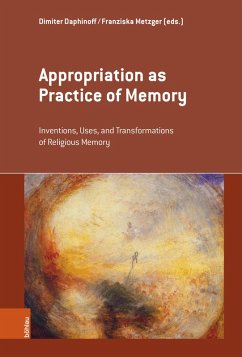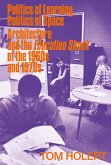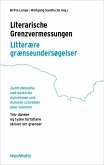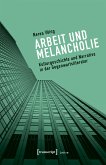This volume explores how narratives and iconographic codes in literature, art, music, material culture and social, political, and economic discourses were appropriated and thereby - sometimes radically - transformed by religious agents, and how religious narrations, discourses and iconographic practices were reimagined and used (up to radical deconstruction) in non-religious contexts as well as in different or transformed religious contexts. Religious appropriation is thereby conceived as practice of memory, drawing on reused - and creating transformed - narrative and visual spaces of imagination. The dimension of memory will contribute to a more differentiated typology of practices of appropriation, their forms, functions and functionalisation. Agency and power relations will be important factors in the individual contributions of this trans-disciplinary volume that links approaches from memory studies, religious history, literary studies, and art history.
Dieser Download kann aus rechtlichen Gründen nur mit Rechnungsadresse in A, B, BG, CY, CZ, D, DK, EW, E, FIN, F, GR, H, IRL, I, LT, L, LR, M, NL, PL, P, R, S, SLO, SK ausgeliefert werden.









